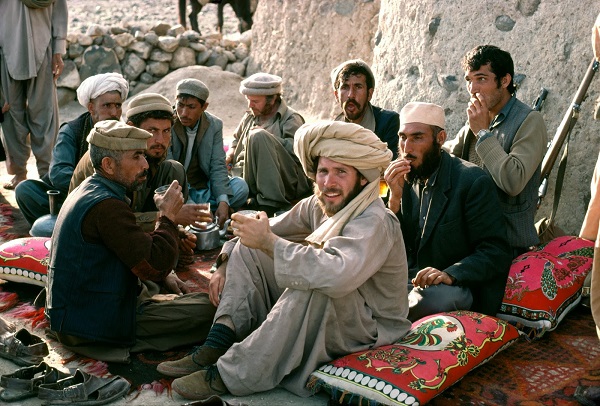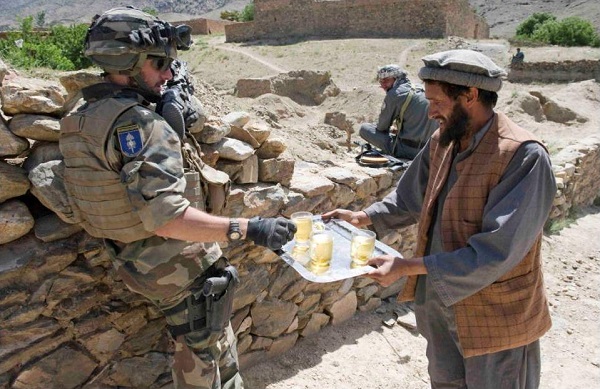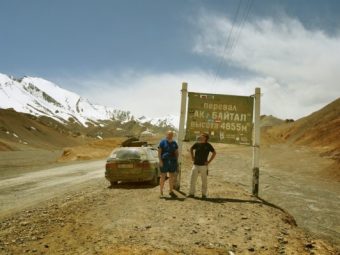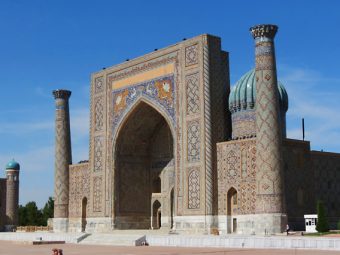As a teenager I saw a movie that made a great impression on me. The Beast (or The Beast of War) was an OK B-movie, but not grandiose or original enough to make cinematic history. Still, what it taught me about Central Asian hospitality and honor makes me remember it to this day.
Image: RSM
It was about a Soviet tank crew in the Afghan war around 1980. The storyline had been done many times before, justice coming before duty, joining the enemy who we believe is right. Mind you, the film was made in 1988, during the Cold War, so Soviets are evil, except for one, who hates his comrades. In the end good wins and villains get their punishment. (The Central Asia Rally offers completely different kind of adventure, don’t worry).
What made the film interesting for me were the details about Afghan culture. I had had some vague idea, but never heard of these rules of clan ties, honor, revenge (badal) and Central Asian hospitality. I was fascinated, but didn’t quite follow up on it – this kind of Hollywood movies are notorious for making up anything the producers can’t be bothered to research. But as I later learned, it’s not only culturally accurate, but a very much alive code. Central Asian hospitality is still governed by melmastia, the principle of hospitality, and its equivalents in other peoples around.
Hospitality is Stronger Than Revenge
The Soviet protagonist – in a dramaturgically far-fetched way – finds out about the principles of Pashtun honor code, the Pasthunwali, including hospitality (melmastia) and sanctuary, nanawatai. The latter basically means that no matter what offence one gives to another, what they had done, if they claim sanctuary (nanawatai), one is obliged by the Pasthunwali to take them in. Anyone under nanawatai must be treated as an honored guest, given full melmastia.
Koverchenko (the good Soviet), who conveniently learned of the Pasthunwali a few days ago, claims nanawatai. He is taken in by the son and brother of those his tank crew killed (not without hard feelings, of course), even though the Afghans were out for badal, revenge. The best scene, standing out from an otherwise indifferent film must be the melmastia in the cave. The angry, spiteful Pashtus grudgingly collect all their food to feed the Russian. It’s obvious how much they don’t want to, but showing how strongly the code of Pasthunwali binds them.
Central Asian Hospitality Overwhelms You
Melmastia, when given good-heartedly, is an overwhelming concept we westerners can’t even comprehend fully. As it is said, a good Western host shares everything with his guest – Melmastia means giving it all. This Central Asian hospitality must be offered to anyone who needs it, be that anyone of another tribe, religion or race. And the amazing thing is – they do. When you visit Afghanistan, or any other country along the route of the Central Asia Rally, complete strangers will offer you their home and table. The most important thing is, it must be given selflessly, and without expecting anything in return.

Still, what you can and must give in return, is respect. Respecting traditions, humble surroundings, unfamiliar customs – Central Asian hospitality will sometimes surprise you! That includes taking your shoes off, tasting unappealing foods, and never indicating you find them inhospitable. Even the slightest, most innocent hint will be taken in dead seriousness. If you tell your host you don’t like fish, he’ll probably kill his only goat for you, even if that means starving for the winter. And never offend your host’s household!
Melmastia is Alive
This might be the most difficult thing to comprehend about Central Asian hospitality: how seriously it is taken. It is such a strong code, that for most Central Asian people it is the only honorable way to act. Someone who fails to comply will lose face in the community forever. We can say that we in the west have our own honor code and morals, but honestly, how many of us would go out of their way to live by them?





Leave a Reply